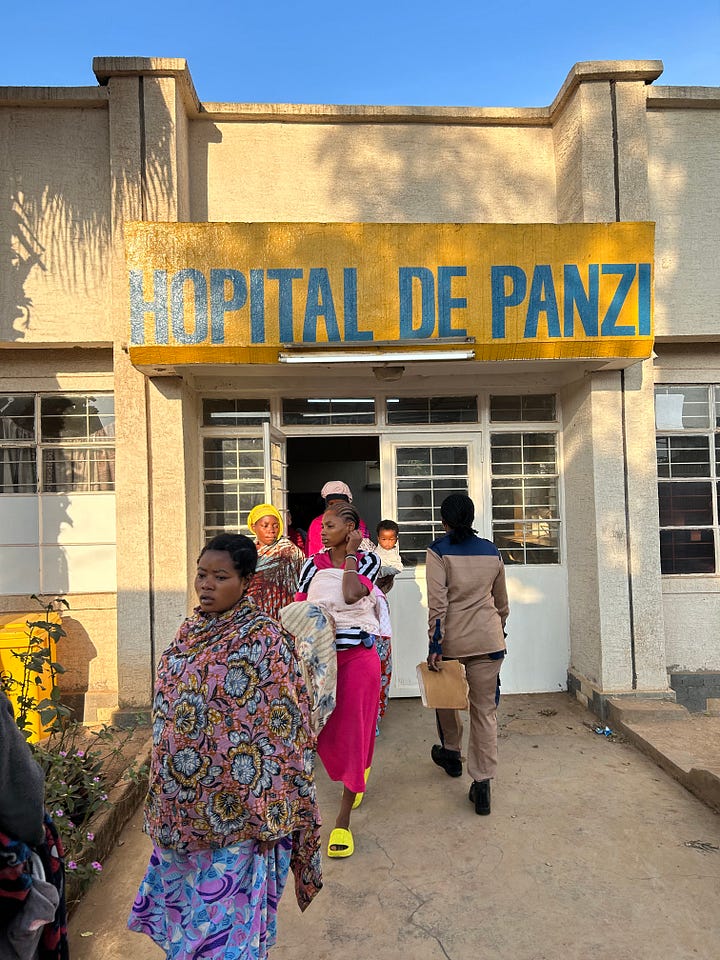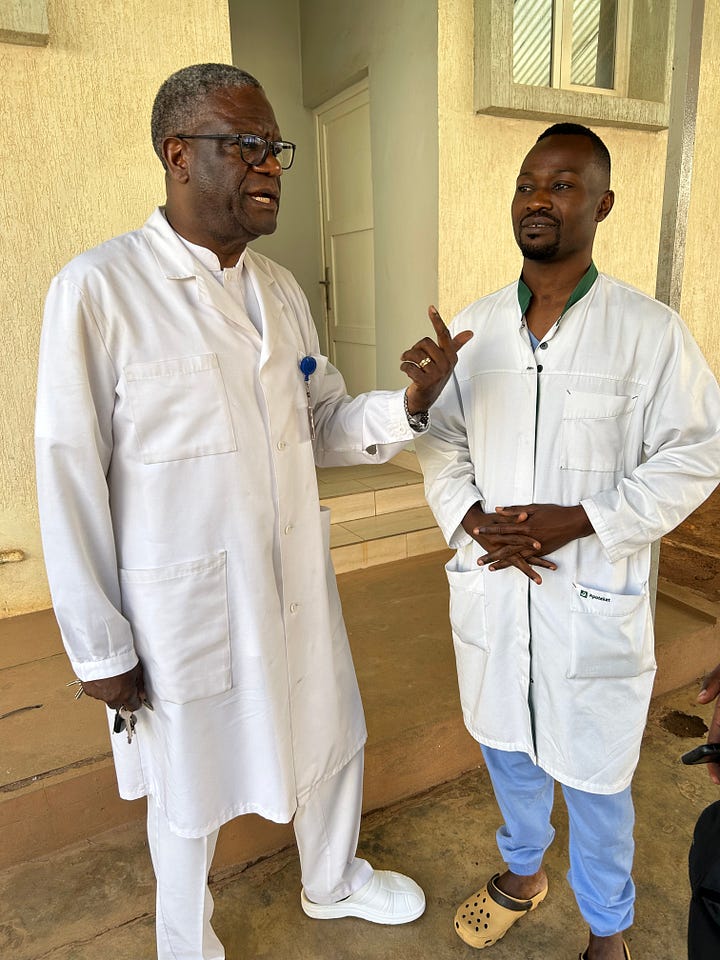The women of Congo
Worldwide fame for Denis Mukwege has not brought an end to the atrocities he treats
To meet Dr. Denis Mukwege, the Nobel laureate who directs Panzi Hospital in eastern Democratic Republic of Congo, you have to wake before the sun and get ready to be greeted in the courtyard by the sounds of women singing.
The first day I visited Panzi, 185 of its 450 patients were survivors of sexual violence receiving surgery and treatment. Many of them stood in the courtyard to sing. Rape as a weapon of war is not a tagline here; it’s the hard-to-confront reality of a country 30 years at war, a war that’s arguably the deadliest armed conflict since World War II.
Mukwege has seen the horrors of Congo’s wars more than most, as director of a mission hospital attacked in 1996 and of his own hospital that in 2025 found itself suddenly surrounded by rebels. On a daily basis the 70-year-old physician sees it up close in the mutilation women suffer. In the past year, Mukwege and his team have treated a 6-month-old infant girl and an 8-year-old, both victims of rape. What keeps him going? His faith and his patients, he says. “I can tell you that the women of Congo are very strong.”
Read the whole story here.




Congo’s war has direct linkage to our smartphones, as the country is the largest producer of cobalt and other minerals that are key to lithium-ion batteries.
The AI-fueled thirst for new chip technology also runs on cobalt—and demand for Congo’s supply could increase by 10 percent this year. Rebel groups seize mining territory for China and others, plus U.S. tech heads are maneuvering for their own stakes in those operations. And now the Trump administration is brokering a peace deal it hopes to complete next month that will give U.S. mining interests controlling access.
Mukwege told me:
War in Congo has become a racket, “a kind of mafia organization at the international level. Our resources make others rich, while people here can be killed at any time. They can die of starving. We have cities that don’t have water, without law and security. It’s not something done by hazard; it’s done to put people in a situation where they have no choice.”
Other news—
In 1889 Andrew Carnegie said, “the man who dies thus rich dies disgraced,” and Bill Gates is taking him at his word. On Thursday Gates announced “my new deadline,” saying he will give away his wealth over the next 20 years and close the Gates Foundation by the end of 2045. The Microsoft founder expects to spend down about $200 billion largely on global health.
A new study from Oxford shows 1 million children could become infected with HIV and nearly half a million die from AIDS by 2030 without consistent, stable funding provided by the U.S. PEPFAR program. Addressing sexual violence (including at hospitals like Panzi) and improving general child health via PEPFAR also has been key to HIV/AIDS treatment.
The freeze in aid that began in January forced 60 percent of PEPFAR recipients to lay off staff, and more than a third to shut down completely. A recent survey shows almost half reporting moderate or severe disruptions to HIV services.
The proposed budget released by the White House on May 2 indicates drastic cuts to global health funding of about 60 percent or in some cases by 60 percent to complete elimination.
In Africa some community health workers are staying on as volunteers after losing U.S.-funded salaries, while the poorest countries are bracing for child mortality rates to rise again.
Yemen’s Houthi rebels reached a surprise ceasefire arrangement with the United States on Tuesday, after a seven-week bombing campaign by the Trump administration that cost more than $1 billion.
India and Pakistan accused each other of launching new military attacks Thursday, using drones and artillery in a third day of the worst fighting between the nuclear-armed South Asian neighbors in nearly three decades.
On the 80th anniversary of the Allies victory in Europe, or VE Day, French President Emmanuel Macron warned about the return of “the spectre of war” and the “resurgence of imperialism and totalitarian behavior” as war in Ukraine has entered its fourth year.
At the Vatican, the College of Cardinals selected Chicago-born Cardinal Robert Prevost the new Pope, the first time an American has been appointed. A dark horse candidate, Prevost, now Pope Leo XIV, is pro-life and pro-social justice, and has pushed back against Trump administration decisions on migrants as well as comments by Vice President J.D. Vance, who is Catholic.
In an interview two years ago, the new Pope said:
We are often preoccupied with teaching doctrine, the way of living our faith, but we risk forgetting that our first task is to teach what it means to know Jesus Christ and to bear witness to our closeness to the Lord. This comes first: to communicate the beauty of the faith, the beauty and joy of knowing Jesus. It means that we ourselves are living it and sharing this experience.
I’m reading … Upheaval by Jared Diamond and Stanley Hauerwas’s new Jesus Changes Everything.




Thank you for bringing to our attention the areas that often slip beyond our gaze and for reminding us that Jesus is still at work in the ugliness and pain. It is ironic but compelling that it is the people who are most acquainted with pain and evil who seem least inclined to dismiss God as incompatible with evil.
Whew Mindy. What a man and what an article. Grateful for your voice highlighting where God is working and where prayers (and action) are much needed.